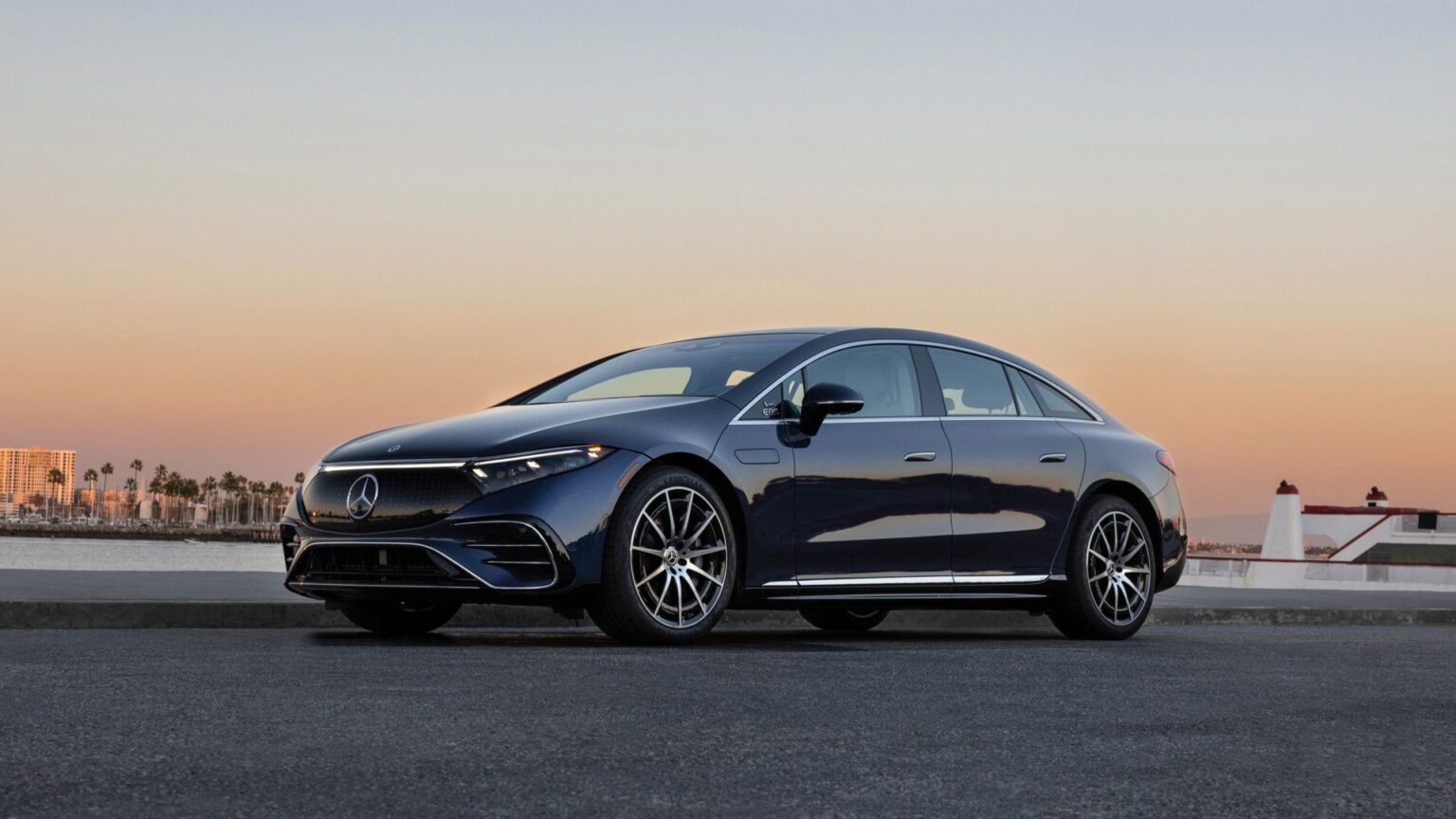If there’s one word to describe the current state of things, it has to be “chaotic.” Following Trump’s clumsy stumbling through our federal government, we’ve seen EV infrastructure and planning gutted, and tariffs that threaten to destroy the American economy, among many other messy, unproductive, and downright harmful nonsense outside of what directly affects the automotive market. Amid this chaos, many automakers are having to make tough calls in an attempt to stay nimble enough to survive the day. Mercedes is eyeing the death of a model as a way to keep things moving.
Mercedes Is Making Changes
Mercedes-Benz will pause production of its EQ electric vehicles for the U.S. market starting September 1, 2025. The move impacts all variants of the Mercedes EQE and EQS sedans and SUVs, including models produced in Tuscaloosa, Alabama, and those imported from Germany. A spokesperson for Mercedes-Benz USA confirmed that order books are now closed and production of U.S.-bound models will stop at the end of August.
This decision comes just weeks before the federal EV tax credit is set to expire on September 30 under Trump’s 2025 budget. It’s a significant turning point for Mercedes’ electric strategy in the U.S.—and a sign of changing tides in the luxury EV market.
Mercedes EQ Models Faced Weak Sales and Harsh Reviews
Despite premium pricing, sales of the Mercedes EQS sedan and SUV dropped by over 50-percent in 2024 compared to the previous year. Industry critics frequently cited unconventional styling, lackluster interior quality compared to Mercedes’ gas-powered E-Class and S-Class, and an overall disconnect from the brand’s traditional luxury cues.
Even Mercedes executives have acknowledged that the ultra-aerodynamic design language of the EQ line didn’t deliver the road presence or emotional appeal that buyers expect from a Mercedes flagship.
EV Tax Credit Expiration Tied to EQ Line Withdrawal
While Mercedes hasn’t confirmed that the end of the EV tax credit in 2025 directly caused the production pause, the timing is hard to ignore. That said, these models were never eligible for full tax credits unless leased, limiting their competitiveness in an increasingly price-sensitive electric vehicle segment. Now, without any help from the tax credit, the Mercedes EQ is officially on the struggle bus. Industry analysts anticipate a broader slowdown in EV sales without federal incentives, and Mercedes appears to be pivoting accordingly.
Mercedes Shifts Electric Vehicle Strategy After EQ Exit
Mercedes-Benz has confirmed it’s not abandoning EVs altogether. Instead, it’s changing direction. Future electric models will follow the template of the G-Class with EQ Technology—familiar, existing models adapted to run on battery power, rather than standalone futuristic designs like the EQS.
The brand has already revealed the upcoming electric CLA sedan and wagon, and a new electric GLC SUV is expected in late 2025 or early 2026. These new models will offer hybrid options and styling more in line with Mercedes’ core lineup.
Final Chance To Buy A New EQE or EQS In The U.S.
If you’ve been considering a new Mercedes EQE or EQS, now’s the time to act. Vehicles already scheduled for production will still be built and delivered, but no new U.S. orders are being accepted. Otherwise, your best bet might be the used EV market, where EQ models are already seeing steep depreciation.
Read the full article here


